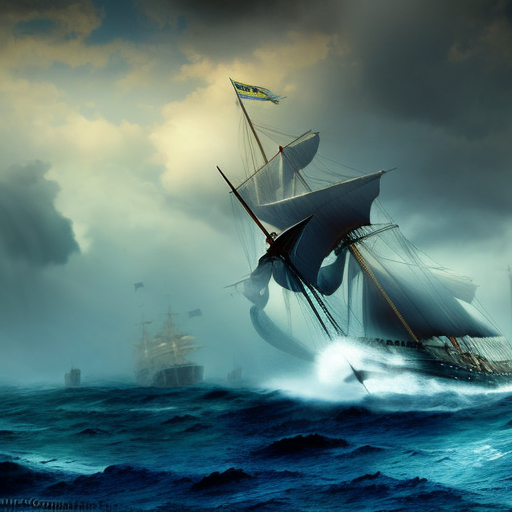One-line summary: “Dead Wake: The Last Crossing of the Lusitania” is a gripping historical account of the tragic sinking of the RMS Lusitania during World War I, highlighting the events leading up to the disaster and its impact on international relations.
The Lusitania’s Ill-Fated Voyage
In “Dead Wake: The Last Crossing of the Lusitania,” author Erik Larson takes readers on a harrowing journey aboard the RMS Lusitania, a luxurious British ocean liner that met its tragic end on May 7, 1915. Larson meticulously reconstructs the events leading up to the ship’s sinking, providing a detailed account of the passengers, crew, and the political climate of the time.
The book begins by introducing key figures, such as Captain William Thomas Turner, who was in command of the Lusitania, and Walther Schwieger, the German U-boat captain responsible for the attack. Larson delves into their backgrounds, offering insights into their personalities and motivations.
As the Lusitania embarked on its final voyage from New York to Liverpool, tensions were high due to the ongoing World War I. The British Admiralty, aware of the threat posed by German U-boats, issued warnings to the ship and its passengers. However, many dismissed the danger, believing that the Lusitania’s speed and size would protect it from harm.
The Sinking and its Aftermath
On that fateful day in May, the Lusitania found itself in the crosshairs of U-20, Schwieger’s submarine. Despite attempts to evade the torpedo, the ship was struck, leading to a catastrophic explosion. Panic ensued as passengers and crew scrambled for lifeboats, and within minutes, the once majestic vessel sank beneath the waves.
Larson vividly describes the chaos and horror of the sinking, recounting the stories of individual passengers and crew members. He also explores the aftermath of the disaster, including the rescue efforts and the international outcry that followed. The sinking of the Lusitania became a pivotal event in World War I, ultimately influencing the United States’ decision to enter the conflict.
The Impact on International Relations
“Dead Wake” delves into the political ramifications of the Lusitania’s sinking. Larson examines the complex web of international relations at the time, highlighting the tensions between the United States and Germany. The sinking of the Lusitania, which resulted in the deaths of 1,198 people, including 128 Americans, played a significant role in shaping public opinion and swaying the United States towards joining the war.
The book also explores the controversy surrounding the Lusitania’s cargo. While the ship was primarily a passenger liner, it was carrying a substantial amount of munitions and military supplies. Larson examines the debates and conspiracy theories that emerged, questioning whether the ship was deliberately targeted due to its cargo.
- The sinking of the Lusitania marked a turning point in World War I, influencing the United States’ decision to enter the conflict.
- The book provides a detailed account of the events leading up to the disaster, offering insights into the lives of the passengers, crew, and key figures involved.
- Larson’s meticulous research and engaging storytelling make “Dead Wake” a captivating read for history enthusiasts.
“The ship was a floating palace, a luxury liner that sailed through a world at war carrying a complement of the wealthy and privileged. The Lusitania was a statement of the possibilities of progress, a symbol of the future. And then, in an instant, it was gone.”
In “Dead Wake: The Last Crossing of the Lusitania,” Erik Larson masterfully brings to life the tragedy of the Lusitania’s sinking, shedding light on the individuals involved and the broader implications of the event. This gripping historical account serves as a reminder of the devastating consequences of war and the fragility of human life.












